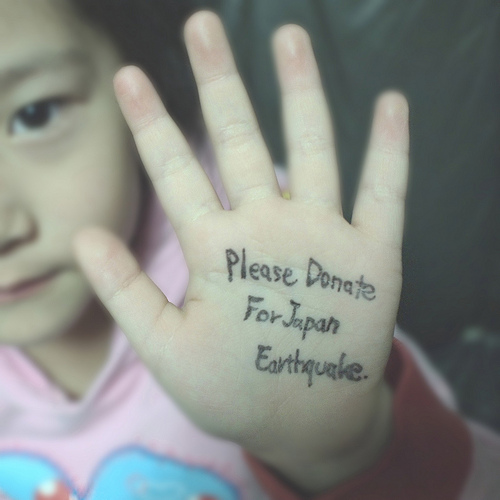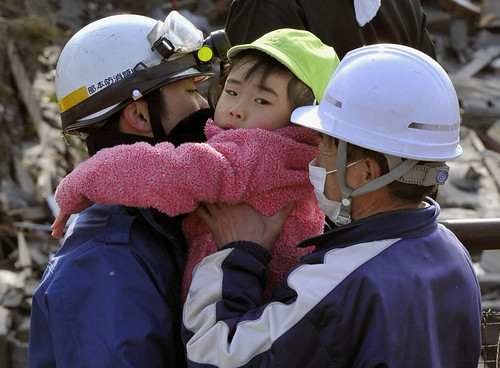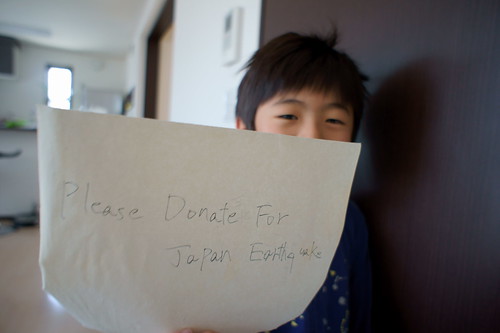You can’t live a perfect day without doing something
for someone who will never be able to repay you.
-John Wooden
An estimated 100,000 children have been affected by the disasters in Japan.
2500 evacuation shelters are currently in place. Many have no electricity or running water.
In the worst-hit areas, hundreds of families are also without electricity, heat or running water. Fuel is in short supply, and there are fears that basic items are not getting to some communities.
There are also shortages of food, water, cooking fuel and clothing.
The weather is unseasonably cold. Snow has fallen.
An estimated 4000 schools have been destroyed or have suffered significant damage.

What this means for Japan’s children:
- fear and a need for psychosocial support.
- stress living in unfamiliar surroundings.
- uncertainty due to the witnessed emotions of the adults around them.
- illness due to exposure and compromised immune systems.
One day this winter our power went out for about 36 hours. No electricity, no running water, no means to cook anything. Trapped by icy roads, so no way to get to a warm place, eat a hot meal. I couldn’t stop watching the thermometer drop in our house. The kids were cold, bored, hungry. And I was afraid of how bad it would get overnight.
But I knew that it would be over very soon. That our lives would return to normal, with the flick of a switch.
Please.
If you are a mother who has ever sought to ease the pain or the fear of your child, donate.
If you are a human being who was ever once a child, and remember what it is like to be small, and helpless, and afraid, donate.
If you are an internet mom, please help us to spread the word today.
Save the Children’s initial program plans:
- Expanding child protection activities that staff in the badly damaged city of Sendai have already initiated, with the disaster-tested Child-Friendly Spaces program as the key response
- Providing non-food relief items to families
- Supplying children with “back-to-school” kits of materials
- Initiating a school-based psychosocial support program for children, their parents and other childcare providers to build resilience and coping
- Supporting local and national groups working to help children and families recover over the longer term, with special emphasis on supporting groups addressing educational and child- care needs
- Advocacy to help ensure that the needs of Japan’s children are included in emergency preparedness planning at the prefecture and national levels.
No act of kindness, however small, is ever wasted.
Aesop
*** Information regarding Save the Children’s projected program plans quoted directly from their website.
All images from Flickr. Click on any photo to be taken to its respective page.







